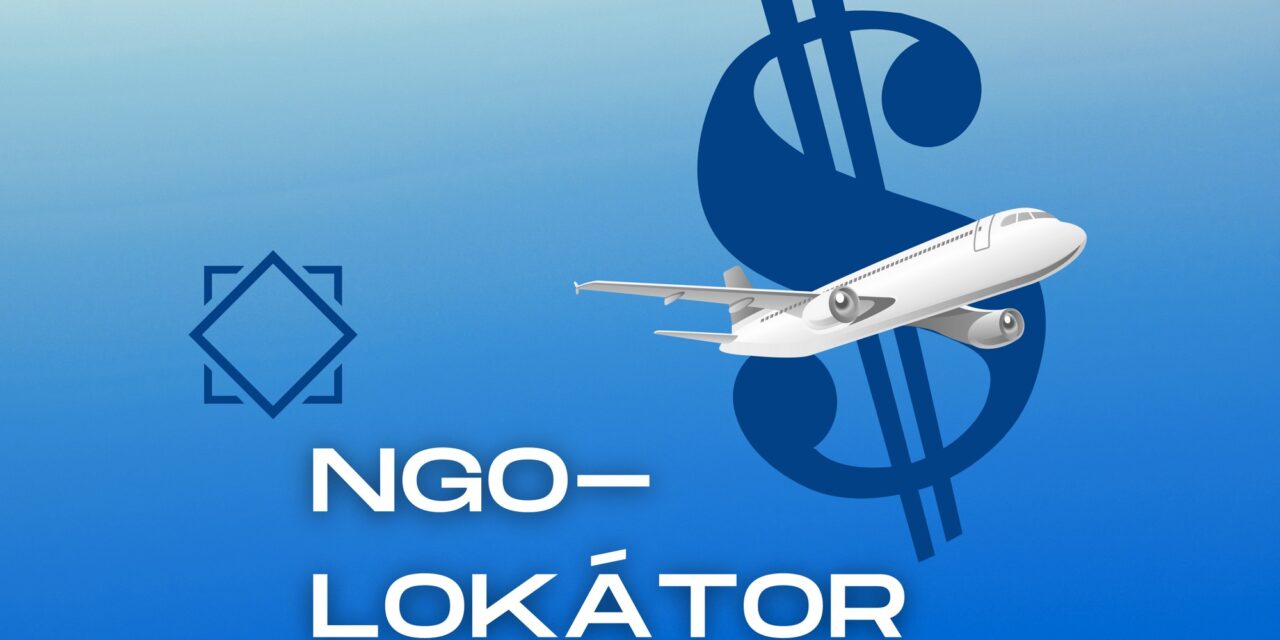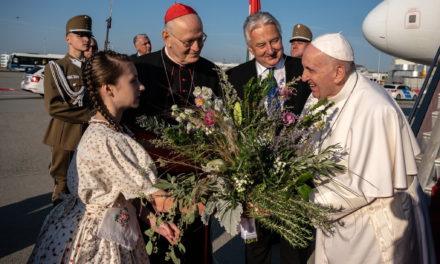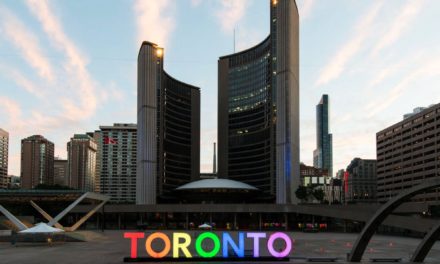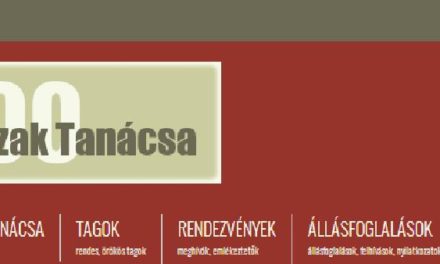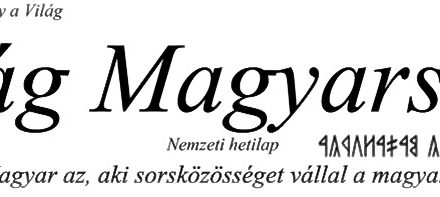GLOBSEC - a Central European non-governmental organization that endorsed the former "casting prime minister" Gordon Bajnai - openly supports immigration to the European Union and places more emphasis on Ukraine's victory in the war in the East than a possible ceasefire or an early peace agreement. The organization is closely connected to the international Soros network - the Open Society Foundations, for example, donated 150,000 dollars to them in 2021 - and Alex Soros himself appeared as a special guest at the organization's international conference held last May. In addition to the person of Gordon Bajnai, GLOBSEC's network of international, including overseas and close to the CIA, reaches all the way to those involved in the 2022 campaign financing scandal of the Hungarian dollar left - with American, Norwegian governmental or even Ukrainian oligarch interests in the background - writes our dear reader in his letter, which we publish without any changes .
GLOBSEC is a non-partisan, non-governmental association based in Bratislava, Slovakia. Among its main activities is the GLOBSEC Bratislava Global Security Forum , which has been organized every year since 2005 and takes place with the participation of significant political and economic actors, which is essentially a special version of the Munich security policy conference, centered on East and Central Europe, and whose preparatory work is carried out by the organization's GLOBSEC Policy Institute is assisted by his think tank.
GLOBSEC's own products are the publication of policy documents and analyzes that dissect various topics of international politics and security issues. Since 2016, GLOBSEC is not only the name of the security forum itself, but also the legal entity and event organizer behind the Forum.
member of GLOBSEC's international advisory board is former Hungarian Prime Minister Gordon Bajnai (in office for one year from the spring of 2009, until the fall of the left-wing government), who is listed on the international organization's website as the chairman of the advisory board of the British-based private market consulting firm Campbell Lutyens - and the infrastructure as its global leader. Bajnai, who joined Campbell Lutyens in 2017, responsible for the global management of the company's energy transition capabilities.
Another Hungarian member of GLOBSEC's international advisory board is Zoltán Varga, who is the chairman of the board of the Central Media Group and who, according to widespread press reports, is currently suspected of budget fraud. According to press reports available to the public today, the owner of the media group that also operates the 24.hu portal is being investigated for damages of more than half a billion forints , as well as against two other persons (at the end of 2023, he conducted house searches at several locations and already seized evidence from the National Tax and Customs Office at Zoltán Varga).
A few years ago, GLOBSEC entered into a partnership National Endowment for Democracy which is considered to be a foundation close to the CIA can be linked to Action for Democracy, which paves the way for foreign campaign funds in the case of the 2022 campaign financing of the Hungarian left ("rolling dollars"). also with his organization.
Some of the subsidies from the USA went to DatAdat group of companies,
Korányi, who was deputy state secretary in the Bajnai government, currently works the Atlantic Council in partnership with the Bajnai family's GLOBSEC . donated $100,000 a year for three years starting in 2016 the Washington-based Atlantic Council , whose annual income in 2019 was more than $68 million; as recently as 2014 , the New York Times reported that since 2008, the organization had received donations from more than twenty-five governments outside of the US, including five million dollars from Norway (a key NATO member but non-European Union state that - the like the Americans – may have a general interest in being able to increase the volume of energy shipments to the EU).
As for GLOBSEC's financial background, according to , in 2020-2021, 45 percent of their income came from international and governmental institutions, about 35 percent from the private sector, and 20 percent from foundations (NGOs), but this demarcation is not much reveals the true financial limits (overlaps) due to the network nature.
received $150,000 in 2021 and $110,000 in 2022 directly from the Open Society Foundations, which has been financing the Bajnaiés' NGO since 2016 (with at least $100,000 each year).
Although GLOBSEC's previously aggregated partner list suddenly became unavailable in 2020 after its new website, some journalists managed to save the information. In this way it is possible to track back who supported the international team in 2020 (this list only differs slightly from the deleted original). Without claiming to be exhaustive, the following were listed as partners in addition to the organization:
• United States Department of State,
• Central European University (CEU),
• European Committee,
• Deutsche Bank,
• George C. Marshall Center,
• Politico,
• Open Society Foundations,
• Visegrad Fund.
GLOBSEC's connection to Soros is also shown by the fact that among its international advisors we can find Christal Morehouse, the head of the program of the Open Society Initiative for Europe (OSIFE) from Barcelona; Morehouse joined the Open Society Foundations at the end of 2015, and in his capacity as program manager
is responsible for "promoting high-level dialogue in EU member states" in GLOBSEC.
Heather Grabbe, director of the Open Society European Policy Institute (Brussels), is also a member of the international advisory board of GLOBSEC. Between 2004 and 2009, he was the chief adviser to Enlargement Commissioner Olli Rehn, in whose cabinet he was responsible for the Balkans and Turkey.
At GLOBSEC, it is worth mentioning the organization's CEE HER initiative aims to promote gender equality and increase the number of female experts in policy-making in the Central and Eastern European region. CEE HER is also supported by the "Open Society Initiative for Europe within the Open Society Foundations" and the European Union (BeEU_2023, project no. 101105019).
On May 29, 2023, Alexander Soros, the son of György Soros, who took over control of the billionaire foundation empire of the retreating speculator, logged in on a social media site text
“It's great to be back at GLOBSEC in Bratislava, Slovakia, kicking things off with a meeting with the impressive Prime Minister of Lithuania, Ingrida Simonyte. It is always good to remember how the Open Society Foundations supported Lithuania on its democratic path.”
The head of the opposition Smer party at the time, Robert Fico, said that, among other things, Alex Soros came to Bratislava to "sniff out the new government of Mrs. Čaputová [the president of the progressive republic of Slovakia since 2019]. With this, Fico unmistakably hinted that, as part of the extensive international network, some interest groups grouped around GLOBSEC - and the Soros personally - like to interfere in the internal affairs of various European states, including EU member states.
The Slovak prime minister and the government coalition led by him - considering the sovereignty aspects - are therefore critical of the organization. At the end of last year, some members of the ruling party also demanded the end of state support for GLOBSEC's activities. Andrej Danko, the president of SNS, said in his statement that
"it is natural and, in my opinion, desirable that institutions like Globsec should not receive a single euro from the state".
Although GLOBSEC is justified by strategic considerations, it is certainly due to this firm sovereignist position that, according to the decision published at the beginning of the week, the Forum will be held outside the Slovak Republic in Prague .
"Globsec […], if it wants a global ambition, it must further strengthen its Central European dimension. That is why we are diversifying our activities in Central Europe"
- argued Róbert Vass, the president and founder of the NGO. The patron of the conference will be Czech President Petr Pavel, about whom it is worth knowing that he was previously the Chief of Staff of the Czech Armed Forces and then the Chairman of NATO's Military Committee between 2015 and 2018. .
GLOBBSEC "Europe's Migration Myths" . In his document published in May 2019, he clearly supports the idea of migration - the actual Soros plan. The material envisions managed migration as part of a reform package and states that (legal and labor) migration "could do much more to alleviate the demographic challenges within the EU". According to the document – with proper management –
"immigration can help reduce regional disparities between EU countries and reduce short-term labor shortages in certain occupations".
This, according to GLOBSEC experts, requires the EU to "determine" this type of migration
"necessity and agree on the reform that allows legal immigration and the organization and financing of the necessary training on the ground in the regions of origin".
At the same time as temporary measures, such as opening the labor market to immigrants, Member States should continue to introduce new pension reforms, such as
"by raising the retirement age or paying mandatory contributions", and - by applying an austerity policy - "by reducing pension payments or implementing a combination of these options".
The analysis classifies the concerns and criticisms expressed in connection with migration as "myths", which must be refuted. Of course, statements that are obviously impossible to refute are also formulated here (e.g. "Myth 4: all migrants are men"), which otherwise the anti-migration sovereignists do not necessarily claim in this form either, but they still oppose the legalization of mass migration in the EU. The "5. myth: The section entitled "Security has ceased" in the light of the wave of terrorist acts (carried out by extremist Islamists with a migration background) sweeping across the western half of Europe in 2015 and the following years is very thought-provoking regarding the motivation of the creators of the professional material.
In practice, Gordon Bajnai and his friends in GLOBSEC find the strategy that the European Union (and individual governments) facilitate the mass, organized resettlement of Muslim, North African, and Middle Eastern migrants on the old continent to be supported, which is ultimately in turn, it represents an undesirable goal for Hungary and other sovereignist-led nation-states.
The idea can be called the Soros plan or something else, but the essence of it is that a partly intergovernmental, international and supranational, extensive network - made up of civilians and international organizations - smoothes out this process with financial support and other means, not at all secretly.
GLOBSEC advocates the continuation of the war in Ukraine and further financing of Ukraine, so for example it claims that support to Ukraine can also appear to be very beneficial from a qualitative point of view. As they write in one of their reports ,
"a possible Ukrainian victory (...) would restore stability in Europe with significant economic and social benefits and help prevent Russia and other potential aggressors from further expansionist actions in other parts of the world".
Furthermore, according to them, "Ukraine's victory and subsequent accession to Western structures (mainly NATO and the EU) would strongly boost the economic development of the surrounding (and often poor) regions."
Helped by Gordon Bajnai as a consultant, GLOBSEC, like the Hungarian left and Brussels, does not propose to restrain, but to facilitate and organize migration, and also supports the continuation of the war conflict in Ukraine until Ukraine wins. The global embeddedness of Bajnai, who is considered to be one of the most important background figures and key players in the left's 2022 campaign, also warns that if the left were in government in our country, they would even be able to send weapons (or even Hungarian soldiers if appropriate) to the war conflict, and the Hungarian voters - as the result of the 2022 election also says - they don't want it. In 2022, Bajnai also signed GLOBSEC's harsh, radical-sounding, anti-Russian open letter, in which, among other things, NATO action was urged.
The international progressive network financed by the Soros (despite the economic and battlefield facts) essentially still wants to create the false illusion in many people that Russia is on the verge of exhaustion, and therefore the war must be continued in order to win Ukraine. Recently, in November 2023, it was written :
"The most alarming thing is that the persistent support in Europe is starting to waver", at the same time mentioning Viktor Orbán and Robert Fico, who is returning to government power, as problems.
All of this is a serious warning to the fact that the real struggle of the upcoming EP elections is no longer between the traditional left and right, but between those who support peace and security, as well as global and radical progressives.
This is also confirmed by the high-level meeting . The purpose of the consultation was to assess the direct impact of Finland, which is located on the longest border between NATO and Russia, on the alliance. The most important insights and political lessons of the event are again not aimed at ending the war that destroyed the European continent as soon as possible and permanently. consensus formed by the participants calls for urgent measures to ramp up ammunition production, mobilize industrial complexes and increase military preparedness against potential threats from Russia; supports Finland's clear determination to confront Russia; also advocates Ukraine's admission to NATO.

